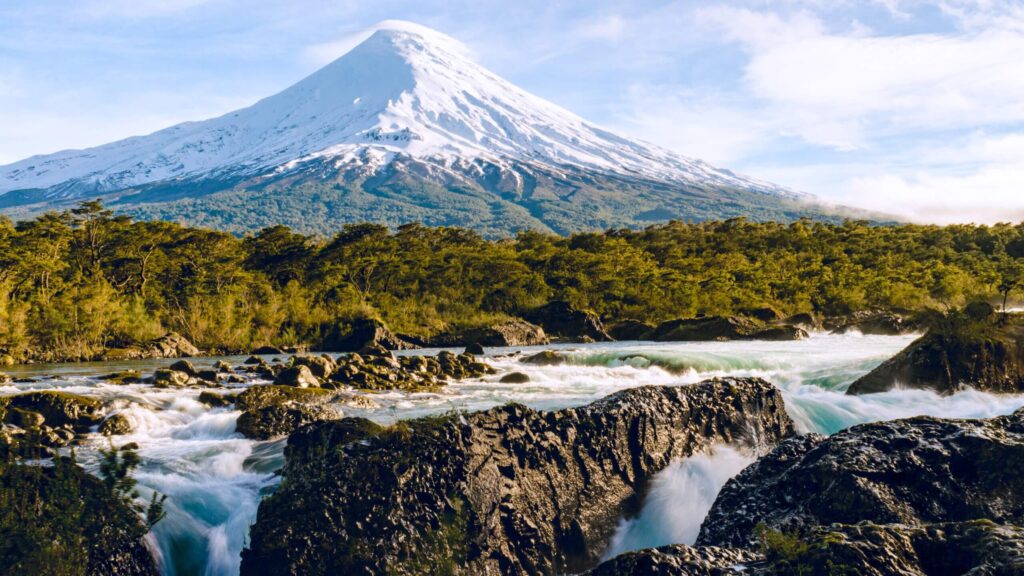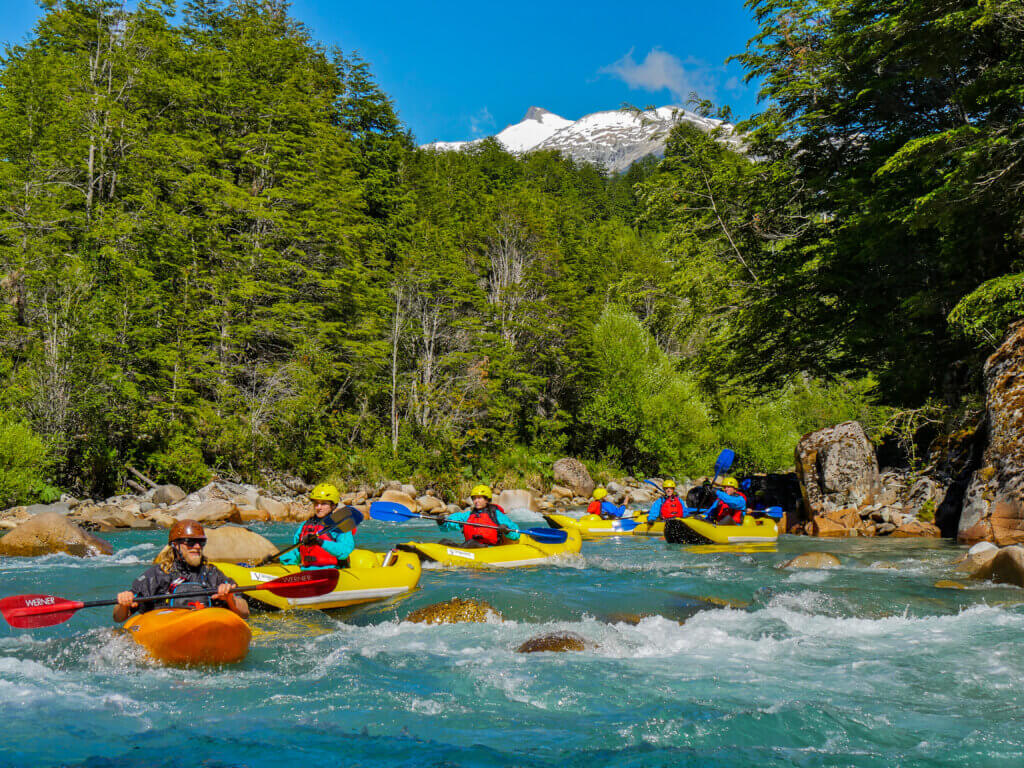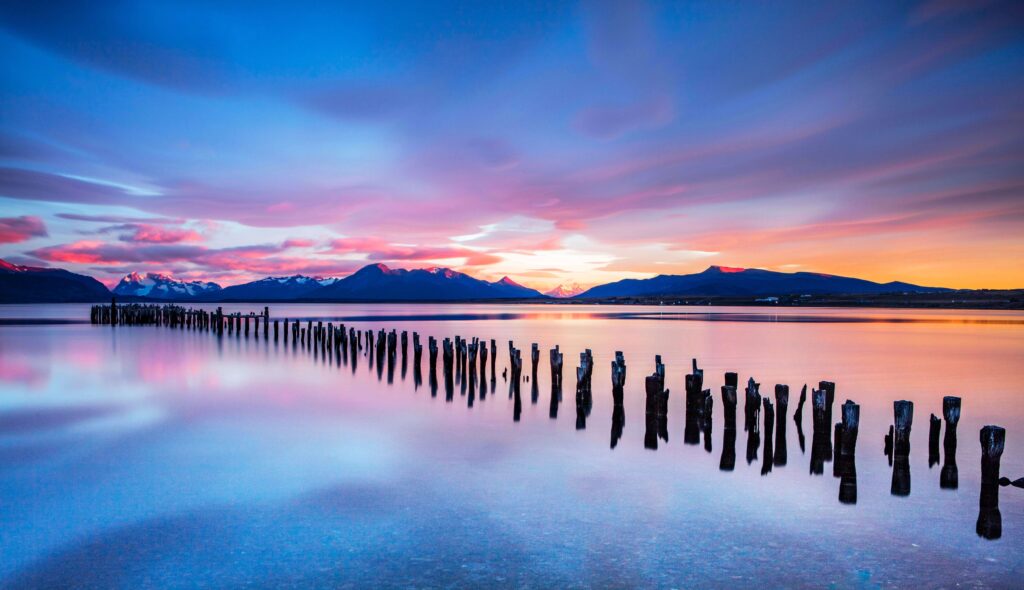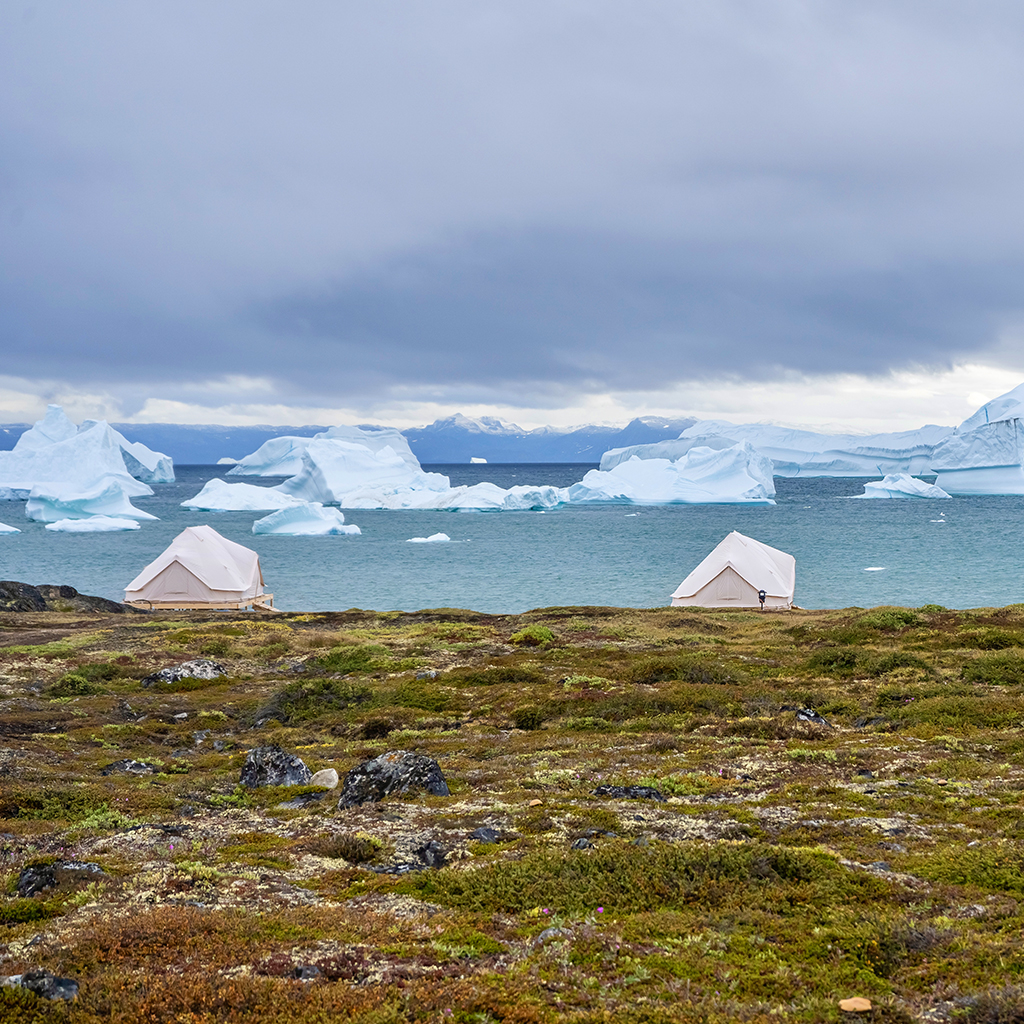
Brushing up your Spanish for a trip to Patagonia? We’ve got good news and bad news.
Spanish is the second most commonly spoken language in the US. If you live here, there’s a good chance you’ve picked up at least a few key phrases. But the Spanish you hear around your city – and what you learned in high school – is mostly Mexican Spanish.
If you’re planning a trip somewhere thousands of miles away from the US and Mexico (like a Patagonia Yoga Adventure in Chile!) you’ll need to make a few language adjustments.
Mexico and Chile are totally different countries, both culturally and geographically. And Patagonia is an especially remote region!
If you speak any dialect of Spanish fluently, you’ll get by just fine in Chile with a few adjustments. If you’re less-than-fluent, things can get tricky.
Let’s dive into the details so you’ll be ready to adventure confidently in Patagonia!
What Language Do They Speak in Patagonia?
Patagonia is a geological region (not a political one!) at the southern tip of South America dominated by the Andes mountains. It’s split between two countries: Chile and Argentina, both of which have Spanish as their primary language. So, the main Patagonian language is Spanish.
There are a few other languages in Patagonia, but they’re less common. The indigenous Mapuche language is still spoken in some settlements. And thanks to a wave of Welsh settlers in the region, you may even hear some Patagonian Welsh (you weren’t expecting that, were you?)
As you’ve already figured out, Spanish is your best bet for Patagonia travel. And if you’re going to Chilean Patagonia, it’s time to study up on the Chilean dialect!
Chilean Spanish vs Mexican Spanish: Differences and Examples

Chilean Spanish is one of the most distinct dialects of Spanish in the world. Some go so far as to claim that it’s a different language entirely! But at the end of the day, Chilean Spanish is immediately recognizable to Spanish speakers… it just violates some rules that other countries strictly follow.
Let’s compare Chilean Spanish to a dialect that’s probably more familiar to you, and hails from the opposite end of Latin America: Mexican Spanish!
Accent and Pronunciation
Chilean Spanish often sounds more high-pitched in tone than Mexican Spanish, which is somewhat more nasal.
But what you’ll immediately notice about Chilean Spanish speakers is that they seem to skip certain vowels – specifically s and d.
So, the word esto (this) would sound like “eh-to.” Pasada (past) would sound like “pasa’a.” The r sound is also skipped over sometimes: if it’s followed by m, n, or l. So, carne (meat) sounds like “can-ne.”
The more remote of a region you go to, the more distinct these differences will sound!
Mexican Spanish speakers, by contrast, tend to pronounce all consonants distinctly.
Verb Forms for “You”
Time for a grammar rule. Getting high-school flashbacks? Stick with us, you’ll want to know this if you’re traveling to Chile!
Mexican and Chilean Spanish both use the same pronoun for “you” – tú. The difference is in the verb form that follows it.
Mexican Spanish follows the grammar rules you’ll already know if you speak Spanish. The tú verb ending is usually a vowel followed by the letter s.
Let’s take the verb comprar (to buy). In Mexico, you’d say tú compras (you buy).
But in Chilean Spanish, the tú verb ending is -ai. In Chile, you’d say tú comprai (you buy).
Vocabulary
There are too many vocabulary differences between Chilean Spanish vs Mexican Spanish to list in one article! You’ll encounter many more as you travel. Sometimes, the same word will have a totally different meaning in each country.
A good rule of thumb: if you say a word you know from Mexican Spanish and receive a blank stare in Chile, just ask for clarification! People are usually happy to help if you’re making an effort to learn. Carry around a notebook (a physical one or on your phone!) to jot down what you learn.
Here are a few important differences between Mexican and Chilean vocabulary:
- Traffic jam. Mexican: tráfico. Chilean: taco (We hope you know what taco means in Mexico).
- Well (emphasis). Mexican: pues. Chilean: po. Used after sí or no for emphasis. This is used more liberally in Chile! “Si, po” is like saying “Well, yeah,” or “Yes, of course” in English.
- Bus. Mexican: camión. Chilean: micro or libre.
- Boyfriend/girlfriend. Mexican: novio/novia. Chilean: pololo/polola. (Bonus: to be dating in Chile is pololeando!
- Party. Mexican: fiesta. Chilean: carrete.
- Waiter. Mexican: Mesero. Chilean: Garzón.
Distinctly Chilean phrases and slang to know before you go:
- Cachai. From the English word “catch,” this means “Do you get it?” or “Did you catch that?” Also spelled cachay or caxai.
- Huevón and hueva. Derived from the word for “egg,” you’ll hear these words a lot because they can mean just about anything! Huevón if it’s a person (guy/girl, dude, friend, idiot) or hueva if it’s not (thing).
- Buena onda. Good vibes (literally, “good wave”!) Use this to describe a person. Marta es buena onda.
- Bacán. Cool, awesome.
- Once. A late-evening snack or light meal. In Chile, you typically eat a large lunch followed by once (not dinner!) Once means eleven, too – it’s unclear how the meal got its name.
Why Chilean Spanish Is So Hard to Understand
Between the differences in vocabulary, unusual verb forms, and silent consonants, it’s clear that Chilean Spanish will present a challenge to most outsiders… especially non-native speakers who learned Mexican Spanish.
But there’s one more thing that ups the ante… Chilean Spanish speakers are known for talking fast. So get ready to focus!
And don’t be too hard on yourself if you have to say “más despacio, por favor” (slow down, please!) all the time.
Do You Need to Speak Spanish to Go to Patagonia?

You won’t find many English speakers outside the cities in Patagonia (and that’s a lot of Patagonia, we go for the jaw-dropping natural scenery, after all!)
When you travel on the Patagonia Yoga Adventure, you can practice Chilean Spanish without the pressure: you’ll be in the hands of expert bilingual guides who are definitely buena onda.
And honestly? As you kayak your way down the white water of the Futaleufú River and hike among glaciers, you’ll spend a lot of your time stunned into silence by the natural beauty.
Estai listo?

